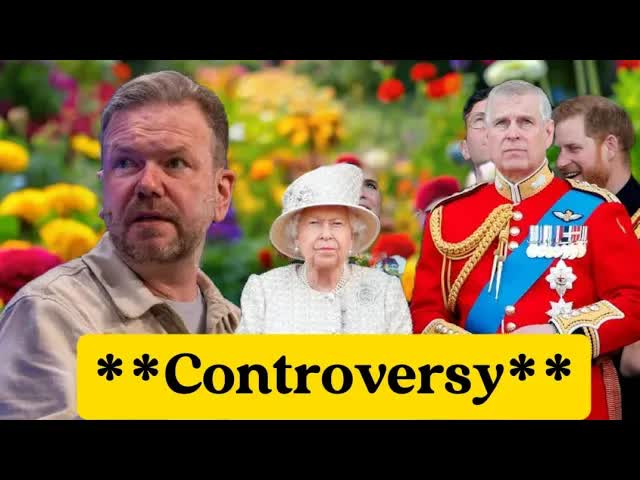In a recent episode of LBC, James O’Brien found himself at the center of a heated debate regarding the British monarchy, particularly focusing on Prince Andrew’s tarnished reputation.
The discussion quickly escalated as callers expressed their views on royal titles and the implications of Andrew’s controversial associations.
This exchange not only highlighted the complexities of royal protocol but also brought forth the public’s growing discontent with the monarchy.
The conversation took an intense turn when a caller named Muffy insisted on referring to Prince Andrew as “His Royal Highness.”
O’Brien, however, countered this by labeling him as “the paedophile’s friend,” a phrase that encapsulated the gravity of Andrew’s past associations, notably with convicted s offender Jeffrey Epstein.
This stark contrast between royal decorum and moral accountability set the stage for a riveting dialogue about the responsibilities that come with royal titles.
Muffy’s defense of Andrew seemed rooted in a rigid adherence to tradition, which O’Brien swiftly challenged.
He posed a provocative question: how many friends have been jailed for serious crimes?
Muffy’s inability to provide a satisfactory answer underscored the difficulty of defending someone with such a notorious history.
O’Brien’s directness in addressing these uncomfortable truths exemplified his commitment to holding public figures accountable, regardless of their status.
As the discussion unfolded, the topic shifted to the broader implications of Prince Andrew’s actions on the royal family.
Another caller, Amanda, raised a pertinent question: should the entire monarchy be judged based on one member’s misdeeds?
This query opened up a larger conversation about familial responsibility and public perception, forcing listeners to consider the nuances of collective guilt versus individual accountability.
The dialogue also touched on the varying perspectives of political figures regarding the monarchy.
Boris Johnson staunchly defended the institution, claiming it is “beyond reproach,” while Jeremy Corbyn suggested that some reform might be necessary.
This clash of viewpoints highlighted the ongoing debate about the monarchy’s relevance in modern society and whether it can withstand the scrutiny of contemporary values.
Prince Andrew’s association with Epstein has become one of the most scandalous chapters in royal history.
His disastrous BBC interview in 2019, where he attempted to justify his friendship with Epstein, further alienated him from the public.
The interview was met with widespread ridicule, as Andrew’s explanations fell flat and revealed a profound disconnect with the realities faced by Epstein’s victims.
Public outrage has reached a boiling point, with many demanding that Prince Andrew be stripped of his royal duties entirely.
The sentiment echoes throughout the UK, reflecting a collective desire for accountability within the monarchy.
Many argue that Andrew’s continued presence tarnishes the royal family’s image and undermines its credibility in the eyes of the public.
James O’Brien has emerged as a prominent voice in this discourse, consistently challenging the monarchy’s traditional deference.
His unfiltered commentary has sparked critical conversations around the royal family’s privilege and the need for transparency.
O’Brien’s approach emphasizes the importance of questioning the status quo, especially when serious allegations arise.
The ongoing discussions about Prince Andrew and the monarchy reveal a significant cultural shift in Britain.
As societal expectations evolve, the royal family faces mounting pressure to adapt or risk becoming obsolete.
Critics argue that the monarchy represents outdated power structures, while supporters cling to its historical significance as a symbol of national identity.
This moment in history serves as a pivotal juncture for the monarchy, where the balance between tradition and modernity is tested.
The debates surrounding royal conduct and accountability are not merely constitutional issues; they reflect deeper societal values and the demand for ethical standards among those in power.
As the public continues to scrutinize the monarchy, the future of the institution hangs in the balance.
Will it evolve to meet the expectations of a new generation, or will it remain mired in the controversies of the past?
The answers lie in the hands of both the royal family and the public, as they navigate this complex landscape of tradition, accountability, and change.
